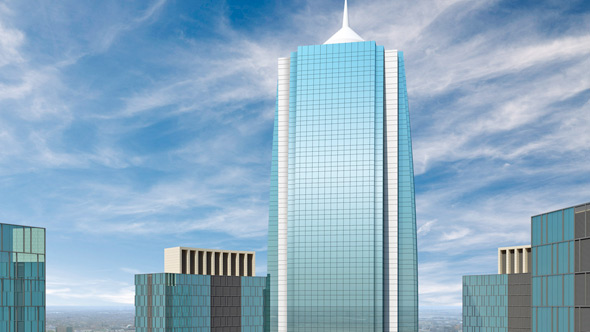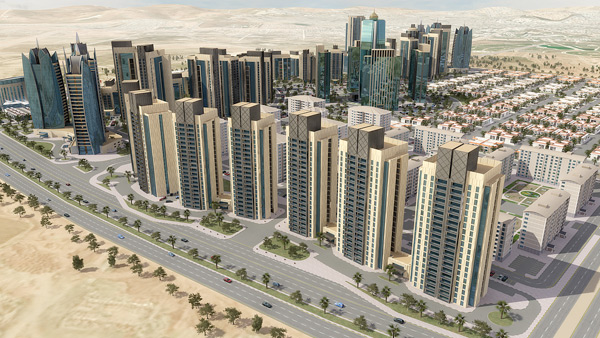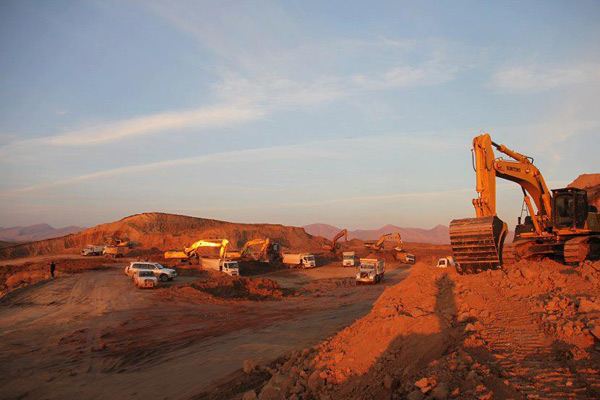Economy: Emergence of Market Economy in Kurdistan
A prominent area of early investment since 2006 has been in the lucrative real estate sector.

A prominent area of early investment since 2006 has been in the lucrative real estate sector.
Fidaden Garde, head of the Sana Group and a board member of the Erbil Chamber of Commerce and Industry sat down with Marcopolis recently to comment on a wide range of economic matters.
Looking at the possibility of a real estate bubble – often a phenomenon in boom economies with many recently created wealthy citizens, Mr Garde said: “No, I think the prices are going to stabilize at a specific level. The prices increased because of many reasons; one of these reasons was the amount of cash in the market, and the priority was in the housing sector.”
Garde was asked in particular to comment on the sustainability of the housing sector, which has accounted for a large percentage of investment versus the possibly higher priority infrastructural sectors, tourism, IT, services and education, the latter three which could transform Kurdistan into a knowledge economy and net exporter of goods.
He noted that at the time of the 2003 US invasion there was a severe housing shortage in the Kurdistan region due frictions with the former regime and also the effect of sanctions against all of Iraq, and therefore of the first economic priorities was the housing sector.
“There was a severe housing crisis in Kurdistan, that’s why I think that the (political) opinions headed mainly to improve the housing sector in Kurdistan Iraq, and now I guess after that period – after these housing projects were done in Kurdistan – the priority lies in industry, agriculture, and tourism sector.”
Looking at the possibility of a real estate bubble – often a phenomenon in boom economies with many recently created wealthy citizens, Mr Garde said: “No, I think the prices are going to stabilize at a specific level. The prices increased because of many reasons; one of these reasons was the amount of cash in the market, and the priority was in the housing sector.”
Another real-estate insider, Peshraw Majid Agha, the Chairman of Empire World – acolossal 2.3 billion real-estate project – agrees with Garde: “most of the real-estate transactions are in cash loans so it is not risky like USA, Dubai or Europe. Majority of buyers are local investors so they don’t take money and run away. They are living in Kurdistan and this is their home. Market is not saturated but very hard to predict house prices. Region’s stability will continue to contribute to housing market. “
On the question of the chief challenges that the KRG’s quickly developing economy might encounter in the near term, Mr Garde was frank, noting that: “The challenges exist and will do so in the future as well, notably in the private sector.
He pointed out however that on the economic front the region was increasingly embracing capitalism more, thus unleashing the potential of the private sector.
“Kurdistan had been under a socialism system and laws until 2003, and now it has changed and the economy is heading towards a free economy,” he said, adding “Kurdistan is secure and stable. Our challenges are the remainders of what we had suffered in the past: infrastructure (deficit and damage.)”
Mr Garde said that the contracting sector was going forward at a strong pace in order to address the large infrastructural problems.
“The contracting sector in general is very effective in Kurdistan, because Kurdistan greatly needs this sector in order to build what had been damaged during the old regime.” He said.
“The contracting sector in Kurdistan is doing well, it is very active and contractors are trying to take advantage of many benefits from the foreign expertise – as our contractors work together with big or small foreign companies and they develop together several projects in Kurdistan.”
Among other large projects is the new highway being built between the region’s capital of Erbil and its second largest city Sulaymaniyah. Also, the prime minister performed the ground breaking for a new international airport in Duhok in late September. Duhok International Airport will be the third airport in the Kurdistan Region. After its completion in 2015, travellers will have direct international access to each of the region’s three provinces. The key airport in Erbil has recently added new facilities and continues to grow markedly.
A number of hotels are under construction including the nearly complete five-star Divan Hotel in Erbil, an $80 million investment by a Turkish hotel group. Also the Marriott group and Kempinski group have nearly completed two large towers. The center of much business and social action is the Rotana Hotel, part of an Emirati-owned group.
There are at least 21 major business hotels in the Kurdistan region’s three main cities: Erbil, Duhok and Sulaimaniyah, owned by a variety of groups and investors.